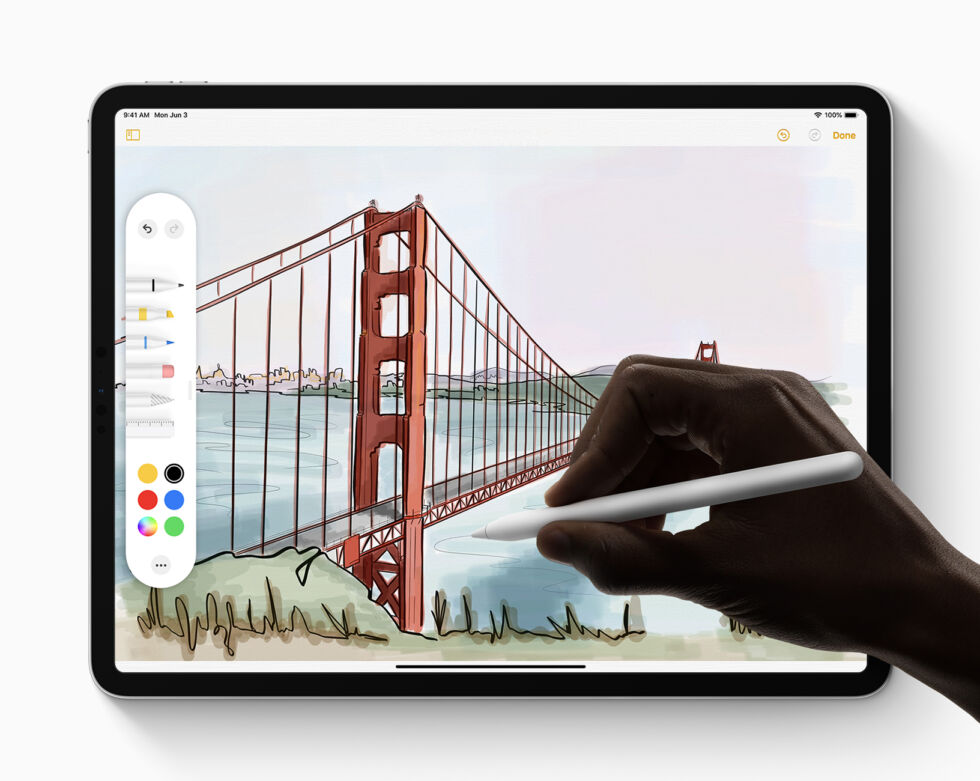-

We've known for a while now that machine learning was important to the palm rejection technology on the iPad when using a Pencil. [credit: Apple ]
Machine learning (ML) and artificial intelligence (AI) now permeate nearly every feature on the iPhone, but Apple hasn't been touting these technologies like some of its competitors have. I wanted to understand more about Apple's approach , so I spent an hour talking with two Apple executives about the company's strategy—and the privacy implications of all the new features based on AI and ML.
Historically, Apple has not had a public reputation for leading in this area. That's partially because people associate AI with digital assistants, and reviewers frequently call Siri less useful than Google Assistant or Amazon Alexa. And with ML, many tech enthusiasts say that more data means better models—but Apple is not known for data collection in the same way as, say, Google.
Despite this, Apple has included dedicated hardware for machine learning tasks in most of the devices it ships. Machine intelligence-driven functionality increasingly dominates the keynotes where Apple executives take the stage to introduce new features for iPhones, iPads, or the Apple Watch. The introduction of Macs with Apple silicon later this year will bring many of the same machine intelligence developments to the company's laptops and desktops, too.
No comments:
Post a Comment